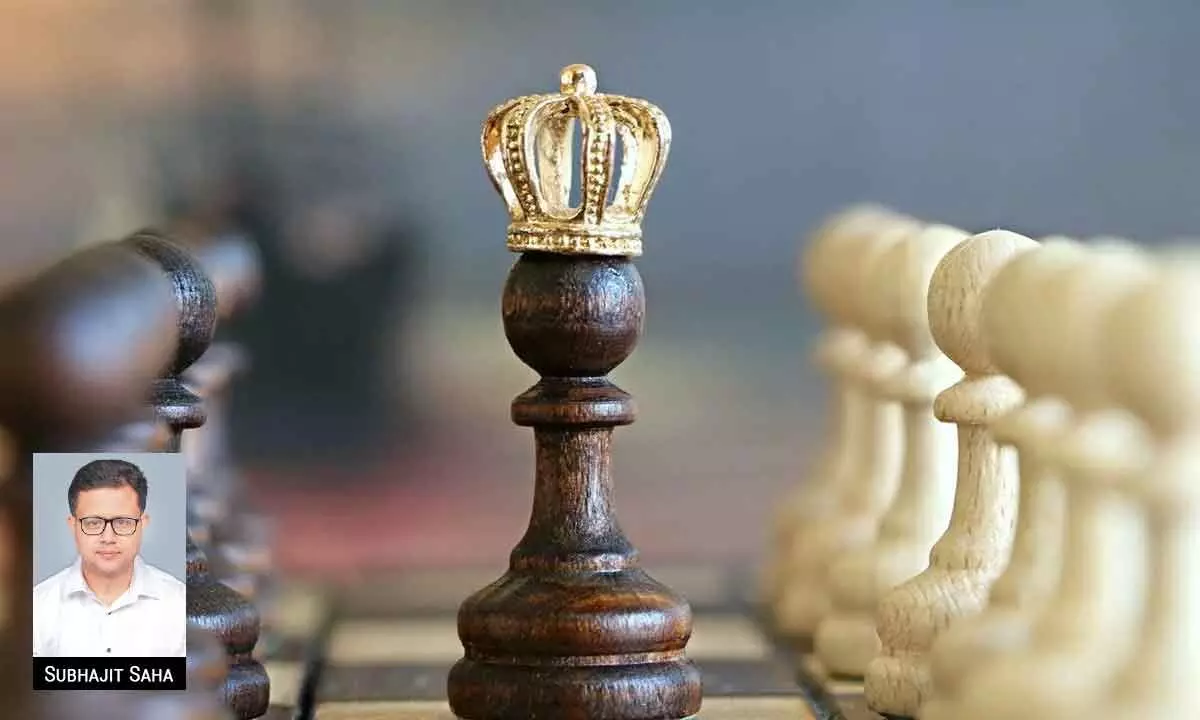Content is the king, but who wears the copyright crown? Humans or machines?
As the landscape of creativity evolves with the emergence of AI, copyright law struggles to keep pace. While AI-generated works hold immense potential, the question of authorship and ownership remains shrouded in ambiguity
image for illustrative purpose

Current legal frameworks, built around the concept of human creators, fail to recognize AI as authors, leaving a gaping hole in copyright protection. This lack of clarity paves the way for disputes like the Basbanes and Gage lawsuit, raising concerns about fair use and exploitation of existing copyrighted materials
Copyrights have always been the crux for artists, musicians, and authors to protect their expressions and original works. Copyright is a form of intellectual property rights which gives protection to literary, musical, cinematographic, and artistic works. Works covered under copyright range from books, music, paintings, sculpture, and films to computer programs, databases, advertisements, maps, and technical drawings.
With the advent of Artificial Intelligence (AI), copyright law also needs to evolve. According to the law, the work needs to be original and creative to qualify for copyright protection. Originality is the main ingredient to examine the availability of copyright protection to a work. AI works are Large Language Modules (LLM) that comes from the person who causes the work to be created into a tangible form as per the section 2(d)(v) of the Indian Copyright act 1957.
Indian copyright law does not explicitly recognize AI as an author, making ownership of content produced by AI tools like ChatGPT a complex and evolving issue. The Person in the act is only recognized as the Natural Person by the Courts and Statute.
Currently, world over Copyright works is being registered only for humans and AI systems aren’t recognized as authors of the work. The AI system might create a work like the original work, but the existing copyright laws do not explicitly confer copyright protection to works not originating from human creators.
The recent lawsuit by authors Nicholas Basbanes and Nicholas Gage that their copyrighted works were unlawfully used by the company to make a profitable artificial intelligence system which has raised a lot of eyebrows on works of AI and their ownership issues.
Further the lawsuit by the New York Times has opened a pandora’s box on ownership and copyright infringement related to traditional journalism and AI. While New York Times has claimed that several of its publications have been used by Open AI and Microsoft train its chatbot and give AI based solutions without permission and any compensation, but we need to see the case in detail on what content and what extent has been picked up to train the AI chat bot and if the outcome from the same is similar or a better version of the content.
Also, there have been a lot of hues and cries on the OpenAI trained ChatGPT using data collected from millions of social media comments, blog posts, Wikipedia articles and family recipes to make Large Language Models (LLM) without the consent of the respective users.
Another interesting turn of events recently to Content and Copyright is one the most iconic cartoon characters of all time and Walt Disney’s most endearing creation, the earliest version of Mickey Mouse, which first appeared in the 1928 landmark animated short Steamboat Willie, has entered the public domain as its copyright expired in Jan 2024.
Legally, that means anyone can now copy and reproduce the 1928 version of Mickey Mouse without permission. But this must be taken with a pinch of salt as only the older version is in the public domain, the new Mickey with the gloves, pupil, and large years still has copyright protection and Mickey Mouse is protected by Trademarks which gives Disney lifetime ownership on the characters. Many competitors or would-be artists will not be willing to challenge Disney for ownership of Mickey Mouse as Disney retains copyrights to all later iterations of Mickey and to any associated registered trademarks.
To conclude, ChatGPT and other AI platforms, terms, and conditions state that while the platform initially owns the content generated, ownership of the copyright is transferred to the user whose prompts led to content generation. Hence, I would say that “Content is the King but Copyrights will remain will the Kingdom” irrespective of man or machine led creations.
(The writer is Head- Legal & IPR, Resolute Group of Companies)

